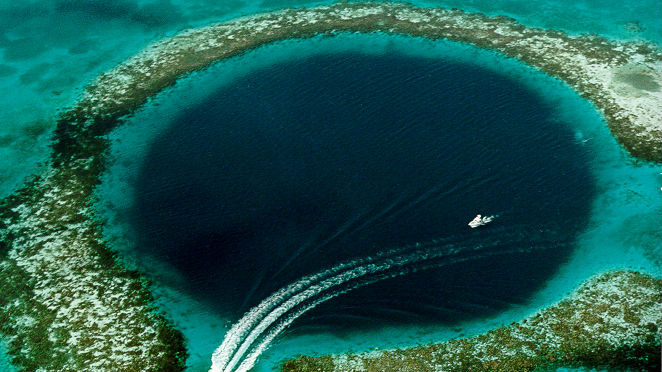Belize Reconsiders Offshore Drilling Ban

The Central American nation of Belize has drafted far reaching regulations that could see almost all of its territorial waters made available for oil and gas exploration. The move has angered some concerned about the potential threat to the world’s second largest coral reef and the world heritage listed Great Blue Hole.
The regulations would allow drilling near the Great Blue Hole, a 124 meter deep sinkhole which is visible from space. The UNESCO protected site was listed as one of the top 10 dive locations in the world by Jacques Cousteau.
Fierce debate about offshore oil and gas production erupted in the country in 2010 after the Deepwater Horizon spill, and in 2013, the Belize Supreme Court banned offshore drilling due to safety and environmental concerns. The judge involved was concerned by a lack of experience amongst some of the local companies interested in the industry.
Tourism accounts for half of Belize’s economy, and environmental groups are concerned about the adverse impact of oil spills. However a government report released earlier this year indicated that drilling rigs could boost marine life by acting as artificial reefs.
Environmental group Oceana has been vocal in the country for a number of years and was instrumental in the 2013 moratorium. In 2012 their “people’s referendum” found that around 95 percent of the 30,000 people who voted (about 10 percent of the nation’s population) were against offshore exploration and drilling.
The government’s new draft petroleum exploration guidelines are yet to be refined,and are expected to form part of a national policy that will be presented to the Belize Cabinet.
According to local media, Princess Petroleum is the only country that currently has an oil exploration concession in Belize. It includes large areas of onshore and offshore Belize, but Princess has not commenced drilling onshore and has abandoned drilling offshore. The company’s concession expires in October.
